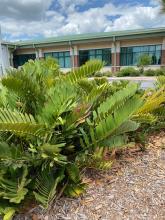District to Host Career Fairs in Brooksville and Tampa
The Southwest Florida Water Management District (District) is hosting career fairs to recruit people seeking a rewarding career protecting the region’s water resources. The career fairs are open to the public and attendees are encouraged to bring current resumes.
The District is a government agency that employs a diverse workforce from across a wide variety of disciplines, including administrative, business and finance, trades work, mechanical, heavy equipment operation, well drilling, natural sciences and engineering, and many more.
- The Brooksville career fair will take place Saturday, May 14, from 9 a.m. to noon at District Headquarters, located at 2379 Broad Street in Brooksville.
- The Tampa career fair will take place Saturday, May 21, from 9 a.m. to noon at the District’s Tampa Service Office located at 7601 US Hwy. 301 in Tampa.
The District maintains a supportive and inclusive work culture that fosters success through teamwork and collaboration. The District offers generous time off, health, dental and vision plans, continuing education opportunities and a 6.38% contribution to the Florida Retirement System. Remote work and flexible work schedules are available for many positions. District offices are located in Brooksville, Tampa, Sarasota and Bartow.
Visit WaterMatters.org/Careers to view and apply for current openings.

